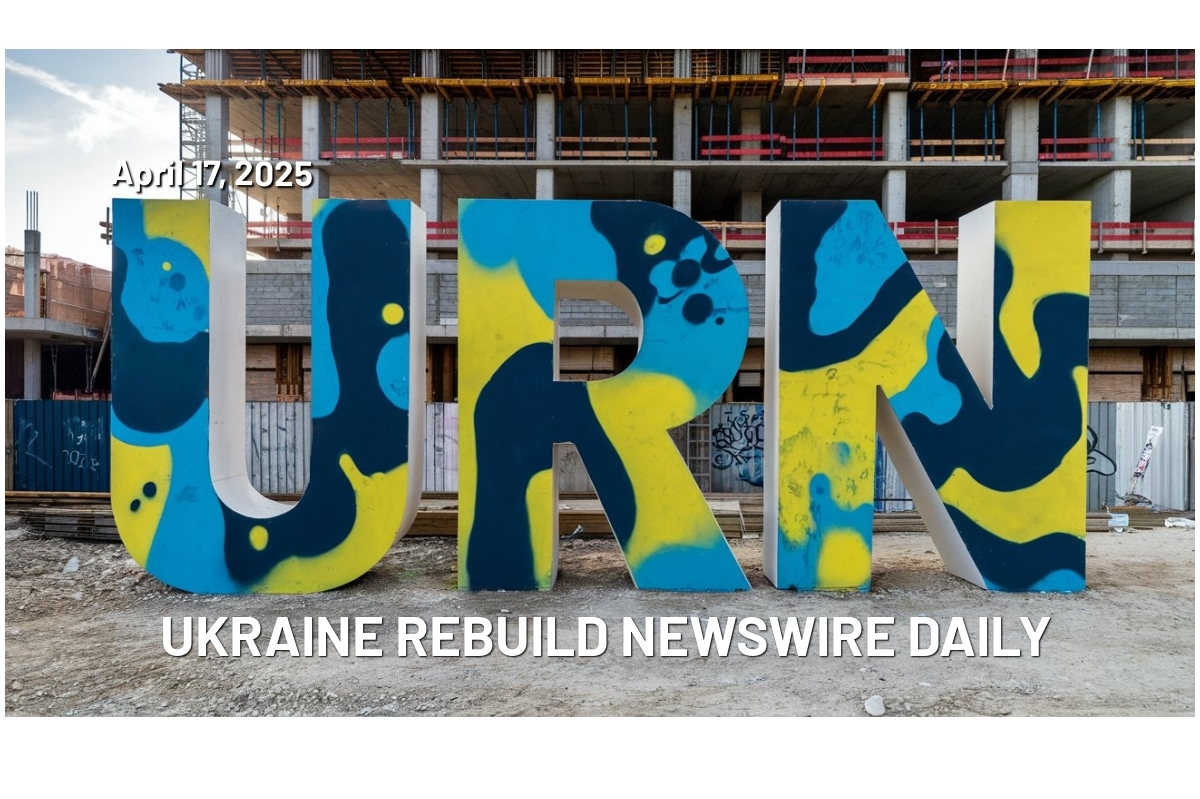American Dan Aspleaf does not promise easy wins in Ukraine for foreign investors looking to actually build something. He knows the work can be messy, the boundaries unclear, and the bureaucracy infuriating.
He also knows that, with forethought and good advice, companies looking to join the reconstruction of Ukraine can overcome those barriers, and fruitfully help build a better future for the country.
Dan has been based in Ukraine for 16 years, including 11 as managing director of CDM Engineering. His experience includes developing and managing complex projects involving investments in a range of industries, water, waste water, solid waste, transport, energy-related infrastructure, and more.
He has stayed in Ukraine throughout the full-scale war, working extensively for international donors such as the US State Department as well as international finance institutions and various US and European multinationals.

Dan Aspleaf's 5 Tips for Foreign Investors Looking to Build in Ukraine
#1 - Don't Let the European Feel Trick You
"Foreigners come to Kyiv or Lviv for the first time, walk around the city, see how nice it is and how nice the people are. They tend to conclude that this is a modern city. It's Europe. In terms of engineering and construction, Ukraine is not Europe."
"They are lulled into thinking that the legal framework and the professional framework and the commercial legal system is something that they can relate to."
"But Ukraine is not a mature market in terms of commercial engineering and construction. That's the first advice I would give anybody: Remember that you're not in Europe."
"It's not even like the rest of Eastern Europe. The Polish market, for example, is significantly more mature than in Ukraine."
#2 - Hire Local Engineering Firms First, Not Just Lawyers
Foreign investors' first move is often to hire a law firm. In Ukraine, Dan suggests foreign firms involved in actual construction combine this step with engaging a local engineering firm.
“If you're going to build something in Ukraine, don't just hire a lawyer,” Aspleaf says. “You need someone who actually understands how things get built here. That's usually an engineering firm because they deal with all the permits, all the licenses, and practicalities of how long it will take, and how much it will cost.”
“The engineering firm knows how to get your permit through the system. They know how to talk to the people who review your paperwork, what buttons to push.”
Many outsiders “show up and hire a team of lawyers and related advisors to start investment preparation, and six months later they have made no practical progress, aside from a schedule and financial figures that often turn out to be fantastical. A local engineering firm can greatly improve the timing and accuracy during this planning phase.”
#3 – Bureaucracy, Not Bribery, Is the Main Problem
“I don't think corruption is really the problem in Ukraine that people think it is.”
“The real obstacle is bureaucracy and general government apathy. And it’s a lot harder to fight bureaucracy than to fight corruption. It's a real mess and it's hard for foreign investors to navigate.”
"75% of the licensing or certifications... should be eliminated. They add no value. They're designed to create artificial monopoly, which, by the way, can also fuel a lot of the corruption."
"I tried to get a basic GeoTech license six years ago. It's a requirement here for a lot of design, and I didn't want to keep subcontracting it out, because it takes forever. The equipment needed to do it is fairly simple, but you need a license. I had my lawyer look at it, and after two months, he came back and said, 'Listen, the state geo service won't issue a license. In their opinion, there's already enough licenses out there.'"
"All this regulatory nonsense in Ukraine doesn't add value. It is left over from the Soviet period, and is a major impediment to realizing investment projects.”
#4 - Prepare for Projects to Take Longer
"You can't come here with the mindset that we've got to get everything built in six months. I mean, you're just kidding yourself, given the regulatory environment."
"If you thought it would take six months to break ground, plan for 12. If it’s faster, great — but don’t bank on it."
"There is no fast-track path. There’s no version where you walk in, get approvals in three weeks, and start breaking ground. Investors accustomed to EU or other Western markets should realize it’s going to take longer than you expect, no matter what."
"Even before the war, the permitting system here was slow. Now, with a lot of officials displaced or systems being rebuilt, things are even slower. There’s a lot of fragmentation."
"One of the big surprises for outsiders is just how long it takes to get everything aligned."
#5 - Don't Try to Do Things on the Cheap
"Most of my private sector clients I've worked with have come to CDM because they came here try to do it themselves, and they ended up with a four-alarm fire."
"If you want legal (white) companies that are capable and play by the rules, you're going to have to accept that it's probably going to take longer than you want it to."
"I had a mission from the US State Department asking me a while back how many legal construction companies there are in Ukraine. I told them that, as far as I know, there are very, very few. They came back to me some time later and said: 'Dan, you were wrong. We couldn't find any."
"I have a team of full labor salary people that they come to work every day. We're fully legal on the accounting side. Transparent ownership, no offshoring.”









